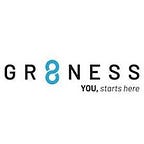Stop and think about it for a minute. Do you consider yourself fairly knowledgable? You might be. But you may also know a lot of information. Or, you could be both knowledgable and have a lot of information, as is the case with most people. Each person possesses impressive brainpower to collect and store bits of data.
There is a difference between knowledge and information, and it lies in complex thinking. So, how do you know if you possess knowledge or information? We’re here to break it down for you.
What’s Knowledge
The definition of knowledge is “the theoretical or practical understanding of a subject…awareness or familiarity gained by experience of a fact or situation.” Sounds a lot like knowing information, doesn’t it?
However, knowledge has an experiential element. It involves immersion in a topic. To know, you must be able to organize and articulate information with relevance to the environment and proper context.
An Example of Knowledge
Consider the topic of government. To be knowledgable, you can explain the various branches, the function of each, how they interact, and the processes behind their actions. You may know the history of how it was formed, how it evolved over the years, and key figures, both past and present.
Now, you don’t have to be a member of the government to gain this knowledge. The experiential factor comes in the form of continuous study, critical thinking, and piecing information together to create a story of sorts. Developing knowledge is intentional. To know information about the government is not the same thing.
Knowledge without Intention
There is an exception to the rule of forming intentional knowledge. This is when we gain a significant and complex understanding of a subject through direct experience, without attempting to.
For example, as a child of divorced parents, you can articulate your experience and the impact it has on your family dynamic. This is a kind of knowledge you gain without seeking it out, formed by the information your brain collects as it impacts your daily life.
What’s Information
The definition of information is “facts provided or learned about something or someone.” It is much simpler than knowledge. All of us have a vast amount of information in our brains. Our brains collect information continuously as a result of stimuli and store it for a later time. The process of gathering information is generally subconscious. Most of the time, we do not practice it intentionally.
Each second of every day, our brains are collecting more information. Information can be significant, such as learning about a major news event, or it can be trivial, such as what the weather is like outside.
An Example of Information
Now, consider the government again. We all know information about the government. But, this information comes in bursts of quick facts. The name of the first president, the three branches of the federal government, who gets to vote.
But, we may not all know the intricate workings of the government. Therefore, we have information on the subject, yet lack deep knowledge. This is not to undermine the importance of information, but instead to show the difference.
Information with Intention
Yet, you can gather information intentionally. Writing a paper for school is one example. Let’s go back to the topic of government. Say you have an upcoming assignment due in history class. You actively seek out information in your textbook, write everything down, so you’re sure to remember, and compose an articulate essay. Your essay is knowledgable, yet you don’t pursue the topic to gain further insight and develop a more significant understanding. You have information, but not knowledge.
How Knowledge and Information Come Together
You cannot have knowledge without information. It is the foundation of knowledge. Nor do we inherently have knowledge on a subject the way we inherently collect information. Information helps us build knowledge, and the information we collect subconsciously plays an integral role in developing knowledge at a later time.
Originally published at https://www.gr8ness.com on May 4, 2020.
